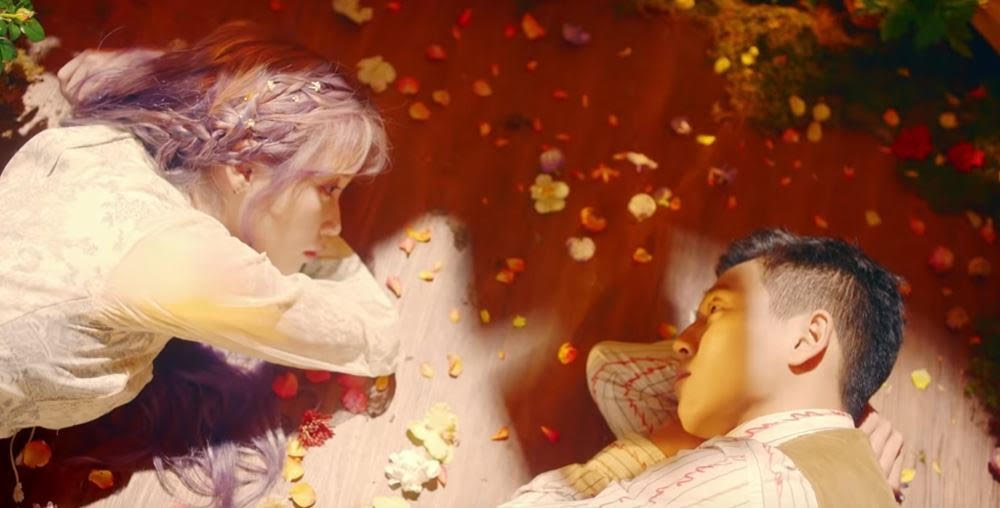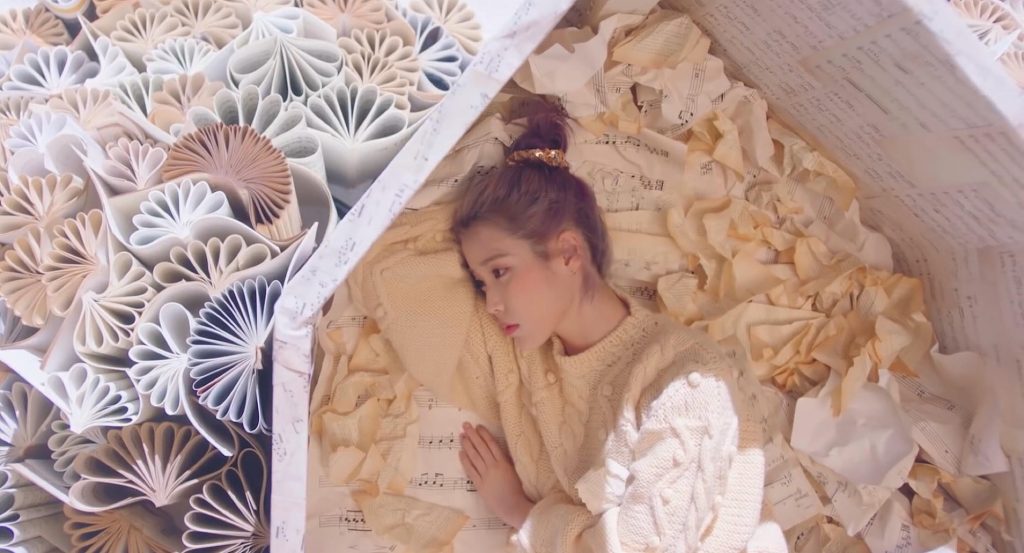
There is a quote in a previous article of Seoulbeats that I kept on thinking about when watching the music video for “Above the Time”. It asks, “Why do we need time travel, when we already travel through space so far and fast? For history. For mystery. For nostalgia. For hope. To examine our potential and explore our memories. To counter regret for the life we lived, the only life, one dimension, beginning to end.” It comes from James Gleick’s book, Time Travel: A History.
In that article, I write about how time travel is a highly common theme in K-pop lyrics and “You and I” by IU is one of the covered songs. “You and I” (along with “Good Day”) has defined IU and her career in undeniable ways and the next singles that IU released afterward felt like declarations of independence from that era.
Now in 2019, “Above the Time” feels like a homecoming, a kind of time-travel back to that time. Of course, this music video was intended to be a “You and I” sequel and we have the same director as before, Hwang Soo-ah and a fresh-from-conscription Lee Hyun-woo. However, for me, the true thread that connects these two music videos together is the focus on this deep longing to be able to time travel, a constant of the music videos and life itself.
The first few opening moments in the “Above the Time” music video suggests that something has gone wrong. The end of the “You and I” music video had denoted a happy ending; IU and Hyun-woo had been reunited in the future, IU’s greatest wish had been fulfilled. Yet when we return to these characters in the “Above the Time” music video, they have now seemingly been separated again.
Lee Hyun-woo lies on a rooftop in the snow, IU sits alone in a boat made out of music sheets (music as a transporter?) and a toy train passes round and round a small circuit. Each image comes together to a clear portrait of loneliness and loss. The cathartic joy of the previous ending has been lost and is nowhere to be seen. Like the train going round in circles, the music video returns to a very similar place to the beginning of the first video but with the older and wearier, but maturer and wiser, IU and Lee Hyun-woo. Yet despite the failure of the first attempt at time travel, Lee Hyun-woo still tries once again to turn back the clock.

In the aforementioned quote, James Gleick talks about the reasons for time travel, providing a mini list of them: history, mystery, nostalgia, hope, etc. In my review of “You and I”, time travel was tied to the hopefulness in the future: for “time travel [to be seen] as an expression of hope in the future, in that “someone”, in themselves and the endurance of love.”
In “Above the Time” — for both IU and Lee Hyun-woo’s characters — it is not about hope in the future, but more about desperately clinging onto brief, fleeting moments of joy in their lives. When Lee Hyun-woo attempts to time travel, he is clearly overwhelmed with feelings of grief and yearning. However, his attempt at time travel is only rewarded with a small moment of happiness, which just feels like it is a really good memory of his. This ties in wonderfully with the lovely instrumental dance break that feels dulled down by its heaviness.

All this did make me think about IU and the position that she is in right now. Perhaps, a good way to describe this era of her career is that IU is in pursuit of timelessness. “Above the time” is a song that is defined by emotions that we have all felt, by its relatability. There are both advantages and disadvantages to this, things lost and things gained. “Above the Time” does though so beautifully connect to “You and I”, time travel may be impossible but the music video does feel so much like a heartfelt bit of it.
(YouTube, Images via Kakao M Entertainment)


